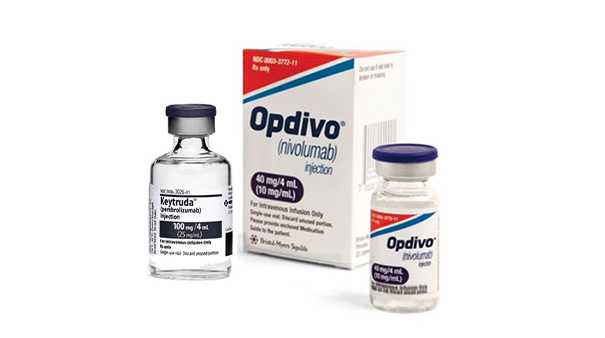BMS’ Opdivo fails late-stage brain cancer test

Bristol-Myers Squibb has run into yet another hurdle trying to extend the use of its immuno-oncology blockbuster Opdivo into new types of cancer.
The latest setback for the PD-1 inhibitor comes in a phase 3 trial of the drug alongside radiotherapy in patients newly diagnosed with glioblastoma multiforme (GBM), a particularly aggressive and hard-to-treat form of brain cancer.
Opdivo was unable to improve overall survival in the CheckMate-498 trial compared to the standard regimen of temozolomide when given on top of radiotherapy to GBM patients with unmethylated MGMT promoter, a factor that means they generally do not respond well to temozolomide.
BMS said it was disappointed with the outcome of the trial, particularly as the 300,000 or so GBM patients diagnosed every year still have very few treatment options. Survival times are close to the worst of any cancer, with a median survival of only around six months from diagnosis and just 5% of patients still alive after five years.
An earlier trial of Opdivo as a second-line therapy for relapsed GBM also failed to meet the target of improving survival when the data read out in 2017. One of the reasons GBM is so hard to treat is that it is difficult for drugs to penetrate the blood brain barrier and target the tumour.
There is still some hope for Opdivo in the cancer, however, as the drugmaker is still running a phase 3 trial of Opdivo plus temozolomide and radiotherapy in previously-untreated unmethylated MGMT GBM patients. That trial – called CheckMate-548 – is due to report preliminary results later this year.
Meanwhile, an investigator-led study of Merck & Co/MSD’s rival PD-1 inhibitor Keytruda (pembrolizumab) in recurrent glioblastoma was able to show an overall survival benefit for the cancer immunotherapy when given either before or alongside surgery.
That trial was small, in just 35 patients, but larger, investigator-led studies are testing Keytruda both alone and in combination with other drugs in GBM patients.
Keytruda has however had its own setbacks too in this setting. A phase 2 trial of the drug alongside Roche’s anti-VEGF antibody Avastin (bevacizumab) – which was approved to treat recurrent GBM in 2017 – did not show any added benefit for Merck’s drug over Avastin alone.
While a massive disappointment for GBM patients, the failure is also another frustration for BMS as it continues to lose ground to an increasingly dominant Merck in the PD-1/PD-L1 inhibitor market.
Opdivo brought in $1.8 billion in sales for BMS in the first three months of the year, but Keytruda is now pulling away after lagging behind Opdivo in the first couple of years after launch with a turnover of $2.3 billion in the same period.
Much of Keytruda’s growth is coming from non-small cell lung cancer (NSCLC), especially from the first-line market where Opdivo has spectacularly failed to make any inroads after multiple setbacks, including most recently in combination with its CTLA4 checkpoint inhibitor Yervoy (ipilimumab) in patients with high tumour mutational burden (TMB).
Opdivo’s slowing trajectory is thought to be one of the reasons behind BMS’ $74 billion acquisition of Celgene, which is due to complete in the coming weeks.












